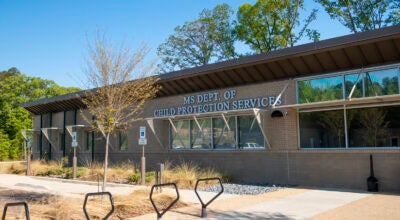Isom Center hosts Wage Gap Town Hall
Published 10:30 am Tuesday, March 27, 2018
Members of the LOU community gathered Monday evening for a town hall meeting to discuss the 2017 Pay Equity and Advancement report.
The report, which was compiled by members of the the Chancellor’s Commission on the Status of Women, illustrates the differences between salaries of employees in each school, from clerical jobs to the most senior academic positions.
Dr. Jaime Harker, director of the Sarah Isom Center for Women and Gender Studies, moderated the meeting, which provided audience members with a forum to discuss the findings of the report and possible solutions for gender-based wage gaps within the university. Drs. Laura Antonow and Kate Kellum, who both worked on the report, were also in attendance.
“This report was the result of several years of analysis of the 2015 data,” Harker said. “At just about every level, both faculty and staff, we’ve seen a significant difference in wages between women and men.”
Harker said she felt as though provost Noel Wilkin’s response to the report was a positive one. In his response, Wilkin called for such things as creating a system within the university to review salary data every year, providing information to department chairs and encouraging interdepartmental administration to take the necessary steps to correct the gaps within their departments.
Many members of the audience were concerned with the action the university planned to take to address the issue, and offered up their own suggestions for correcting it. One audience member who voiced her concerns was Marie Barnard, associate professor of pharmacy. Barnard said she was concerned about the effectiveness of some of the suggested actions in the provost’s response to the report.
“I think the response is really positive, and this is the one step forward the provost has made. One thing that concerned me in the response is that chairs and deans will be encouraged to address the gender pay gap at budgeting time,” Barnard said. “That gap exists sometimes, not always, because of an academic chair. For that big of a gap, encouraging them to address it is not quite enough.”
The panel responded, saying the proposed plan is to incorporate the idea of pay equity across all fronts into performance reviews for chairs and deans. Kellum added another solution, saying when an inequity is detected by a report, there will be an active process to address the issue instead of ignoring it.
Harker said, although the provost’s response was positive, other deans and department chairs might not respond as well, so there is a need for “mechanisms with teeth” to ensure the proposed procedures are followed correctly.
One department chair in attendance, Dr. Kirsten Dellinger, said the most effective process is one where chairs and deans receive wage gap data and undergo interpretive training.
“As a chair, it’s pretty important to think about how chairs are going to get this information,” Dellinger said. “I really don’t think you can talk about some kind of punishment for chairs or deans that aren’t doing this if you don’t provide institutional support and training and information. This can’t be something that’s piecemeal. You’ve got a bunch of people in chair positions who may have no idea how to assess and address wage gaps. It’s a complicated issue.”
One topic that widely relates to the LOU community is the role university staff members play in the wage gap discussion. While the 2017 Pay Equity and Advancement report was largely centered around academic faculty, Antonow said the logical next step in data collection is to more closely examine wage discrepancies within staff positions.
“Because this was responded to by the chancellor and provost office, and that’s the academic side, that’s where we’re starting,” Antonow said. “But we can’t wait until it’s all fixed on the academic side so we can start thinking about staff, because we have many staff members who are paid less than $25,000 a year, the majority of whom are women.”
In the future, the panel said their hope is for the university to coordinate with the staff council in order to respond to wage gaps. They also said their understanding, based on the provost’s response, is that the university will employ a team whose sole purpose is to further examine wage gaps between university employees and correct them.
Paul Caferra, the university’s ombudsman, said the report, and issues presented during the town hall meeting, is reason to believe change is possible.
“One of the things I think it’s important to recognize is, we’ve got policies, but the policies are there to serve us as a community,” Caferra said. “So if there are policies that are getting in the way of certain beneficial actions, the thing to do is advocate for a change in policy. I wouldn’t let the existence of a given policy at a given point in time hamstring anyone from taking actions that advance the university.”
For more information or to read the report and provost’s response, visit http://ccsw.olemiss.edu/.





